If you think emotional intelligence is just a human thing, think again. Sure, you might pride yourself on your ability to read a room, empathize with a friend, or even argue that your emotional IQ is off the charts. But you’ll be surprised how some animals beat us at our own game. We often measure intelligence in terms of academic smarts, but if we’re talking emotional intelligence, we’re not always top dog—or cat, for that matter. Here are 15 animals that might just have more emotional intelligence than most people you know.
1. Elephants
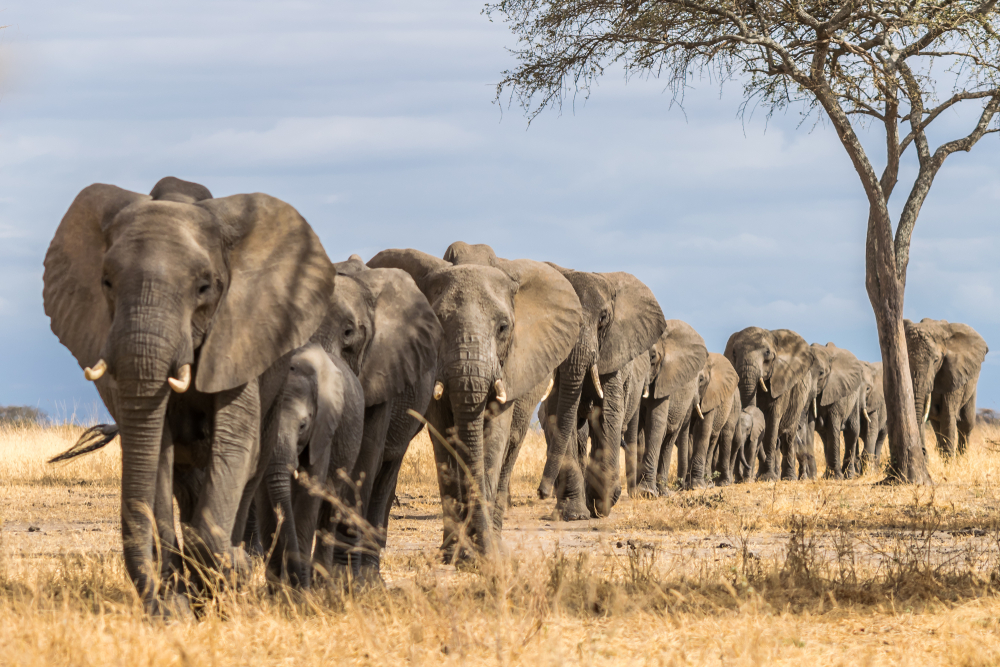
Elephants are gentle giants with a heart as big as their stature. They’re known to grieve deeply when a member of their herd dies, often returning to the site of a herd member’s demise years later. Dr. Joyce Poole, a renowned elephant researcher, has noted that elephants demonstrate behaviors akin to human mourning, such as touching the bones of deceased family members with their trunks. These behaviors suggest a profound understanding of death and loss, which many humans are still learning to cope with. You might not find them in therapy sessions, but their emotional displays are nothing short of remarkable.
Their empathy isn’t limited to their own kind; elephants have been observed rescuing other animals in distress. They’ve helped trapped dogs and even humans in some instances, showcasing an ability to recognize and respond to the suffering of others. In many ways, they act on an unspoken, cross-species code of compassion. When it comes to nurturing relationships and showing empathy, elephants could teach us a thing or two. Their profound sense of community and emotional sensitivity make them truly exceptional.
2. Dolphins
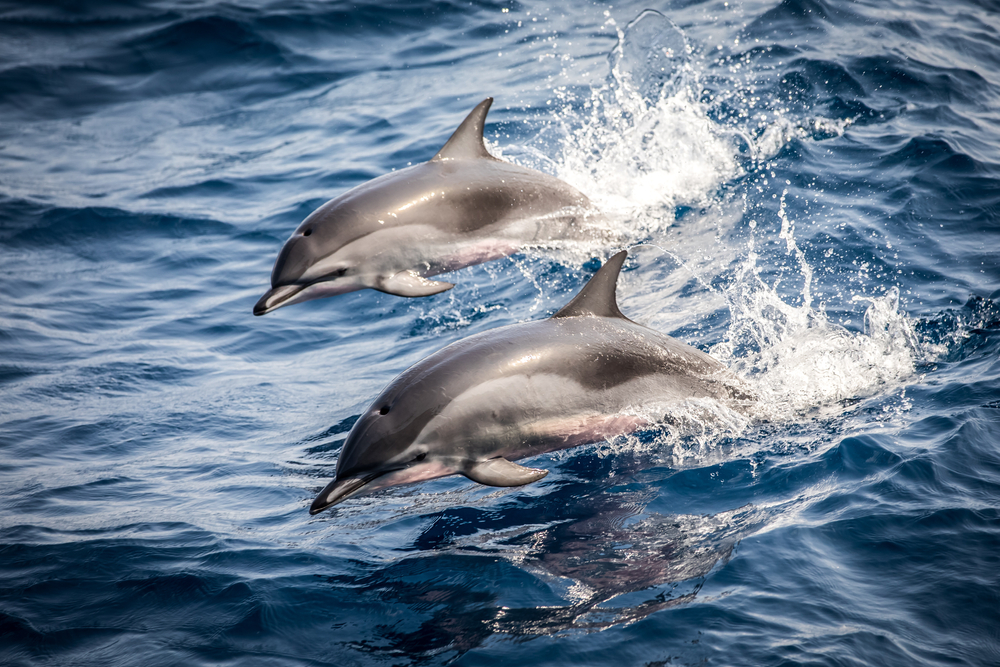
Dolphins are not only smart, but they’re emotionally intelligent, too. They have complex social structures and are known for their playful behavior and ability to work as a team. Dolphins exhibit behaviors such as mourning their dead, showing clear signs of grief that can last for days. They also express joy, especially when reunited with long-lost pod mates. Their genuine enthusiasm for social bonding is something we humans often strive for.
Their communication skills are top-notch, involving a range of clicks, whistles, and body movements. This allows them to convey emotions and coordinate intricate group activities like hunting. Dolphins have been seen helping injured companions, demonstrating compassion and understanding that go beyond mere survival instincts. The more we study them, the more it becomes clear they possess a rich emotional life. If you ever doubted the emotional depth of marine life, dolphins are here to change your mind.
3. Dogs

Dogs might just be man’s best emotional intelligence coach. Their ability to read human emotions and respond accordingly is nothing short of uncanny. According to a study published by Dr. Juliane Kaminski in “Current Biology,” dogs use their gaze to communicate with humans, often adapting their behavior based on human reactions. That wagging tail or soulful stare isn’t just cute; it’s a genuine attempt to connect with you on an emotional level. Dogs seem to intuitively know when you need comfort or companionship.
They frequently display empathy, often mirroring the emotional states of their human companions. This mirroring effect helps create a bond that is both deep and comforting. Just as they can sense when you’re sad, they’re just as likely to share in your happiness. Their ability to provide unconditional love and companionship is a testament to their emotional insight. If only people could understand each other as well as dogs understand us!
4. Cats

Cats might not wear their hearts on their sleeves like dogs, but don’t be fooled. They have a subtle way of expressing emotional intelligence that’s easy to miss if you’re not paying attention. They are capable of forming strong bonds with their humans and have been known to comfort their owners during times of stress or sadness. A gentle headbutt or a soft purr can be their way of offering support. Cats also have a knack for sensing when their owner needs a little space, retreating to a quiet corner, and giving you room to breathe.
Unlike dogs, cats communicate their emotional state through more nuanced body language and vocalizations. A slow blink, for instance, is cat language for trust and affection. While they may seem aloof, many cat owners attest to their pets’ ability to provide solace and companionship. Their emotional intelligence lies in the ability to give as much affection as they find necessary. If you’ve ever been comforted by a cat curling up beside you, you know they’re emotionally attuned in their own unique way.
5. Ravens
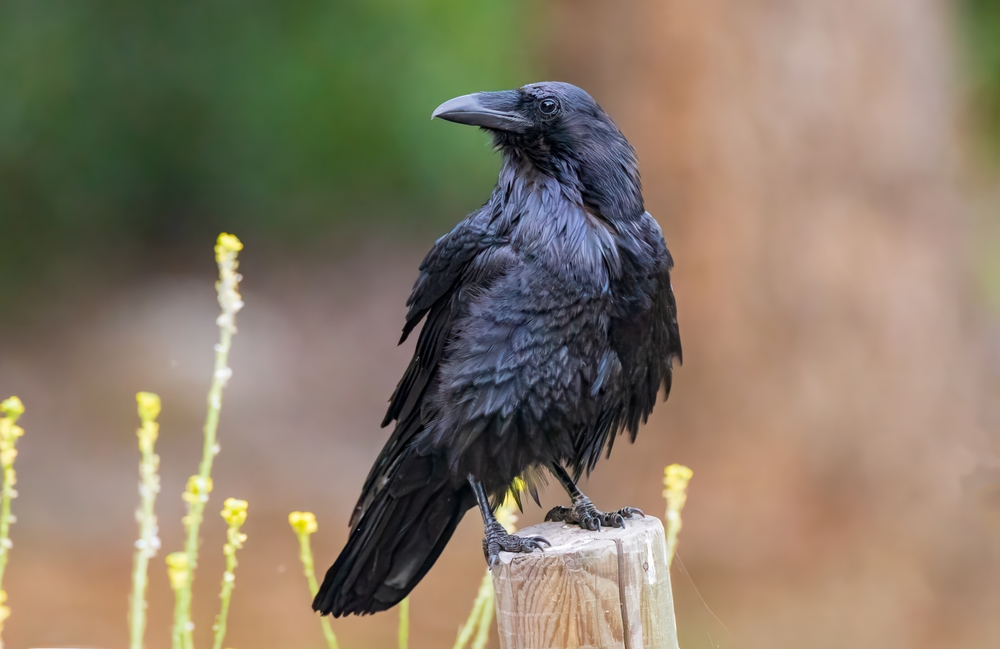
Ravens are not just the stuff of myths and legends; they’re emotionally astute creatures. These birds are among the few that exhibit behaviors that suggest an understanding of fairness and empathy. In a study conducted by Dr. Bernd Heinrich and published in “Science,” ravens were observed sharing food with others who had helped them in the past, indicating a system of reciprocity that relies on emotional memory. They seem to have a moral compass, recognizing and rewarding acts of kindness. Their emotional depth is as rich and dark as their feathers.
Moreover, ravens are known to mourn the loss of their mates or flock members, displaying signs of distress. This mourning period can affect their activities, much like humans who experience grief. They also engage in play, which is another sign of their complex emotional lives. Whether they’re playing tricks on each other or solving intricate problems, ravens display an emotional intelligence that’s both fascinating and slightly eerie. These birds are as emotionally layered as they are intellectually gifted.
6. Chimpanzees
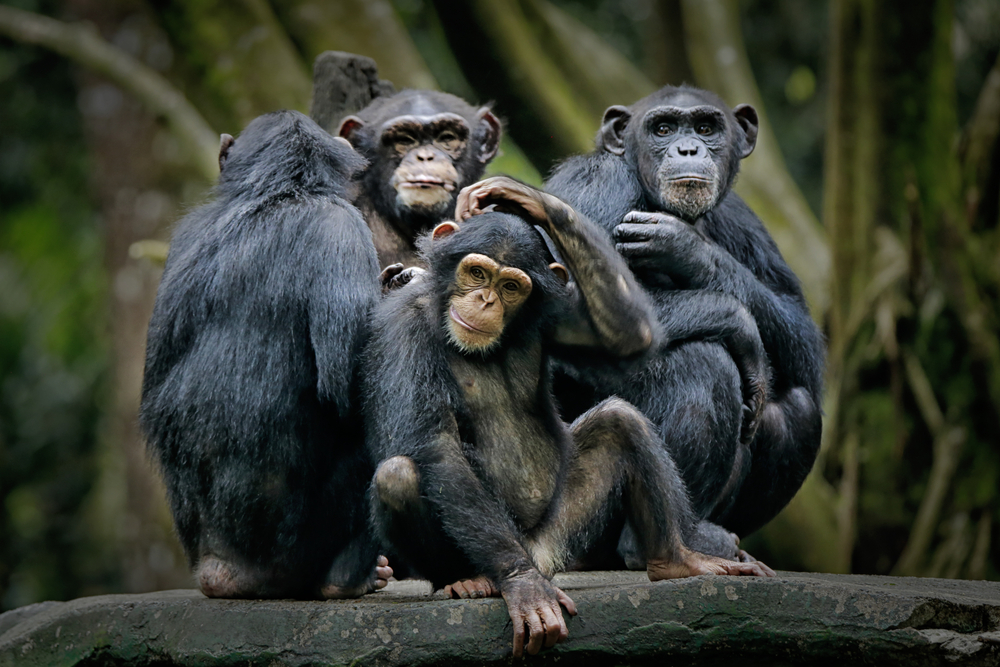
Chimpanzees are our closest relatives in the animal kingdom, and their emotional intelligence reflects that bond. They experience a range of emotions similar to humans, including empathy, jealousy, and even a sense of fairness. Observations have shown that chimpanzees console each other by touching and embracing, a behavior that strongly resembles human comfort. They are also capable of holding grudges and reconciling, indicating a deep understanding of social relationships. The complexities of their emotional world are a mirror to our own.
Chimps also mourn their dead, often refusing to leave the side of a deceased family member for days. This level of emotional engagement is not just instinctual but deeply ingrained. Their ability to forge strong social bonds and navigate complex group dynamics shows a level of emotional intelligence that rivals our own. Understanding chimpanzee behavior provides a glimpse into the roots of human social emotions. They’re a reminder that our emotional complexities are deeply rooted in our evolutionary past.
7. Bonobos
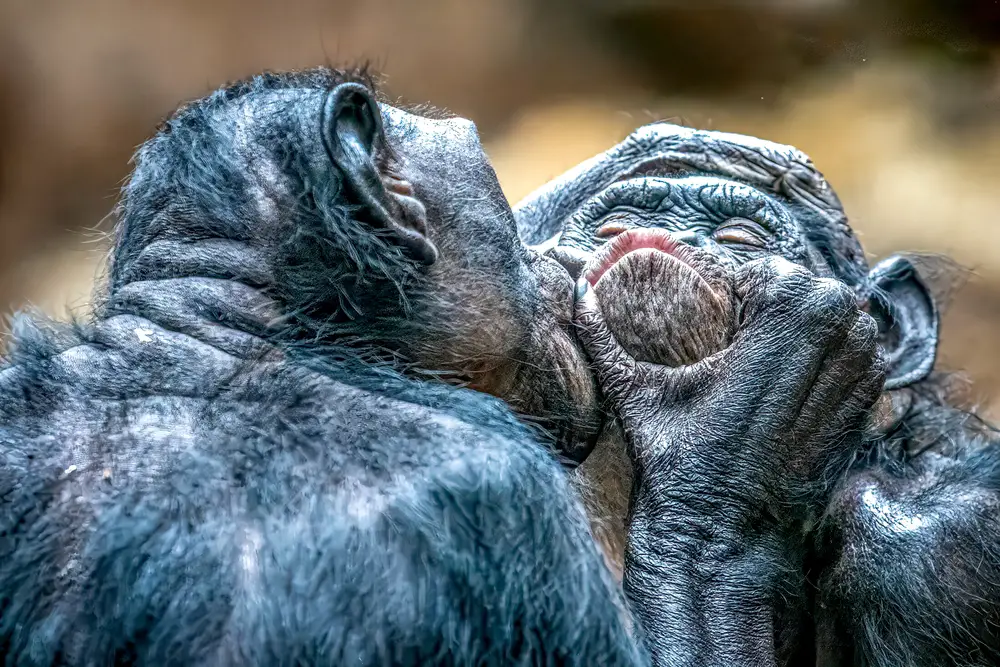
Bonobos, often mistaken for their chimpanzee cousins, are equally emotionally intelligent and perhaps even more peaceful. They are known for their matriarchal societies and strong social bonds. According to anthropologist Dr. Brian Hare, bonobos use sexual contact as a form of conflict resolution and social bonding, which is unlike any other primate. This behavior indicates a sophisticated understanding of social harmony and emotional connection. Their approach to community and conflict could teach us a thing or two about peaceful coexistence.
In times of stress, bonobos rely on bonding rather than aggression, showing that empathy and compassion are their default responses. They display affection not just through touch but also through shared activities and grooming, creating a network of close-knit relationships. Bonobos seem to have mastered the art of using emotional intelligence to maintain peace and harmony within their groups. Their ability to forge strong, empathetic connections is something even humans struggle with. It’s no wonder they’re often referred to as the “make love, not war” apes.
8. Horses
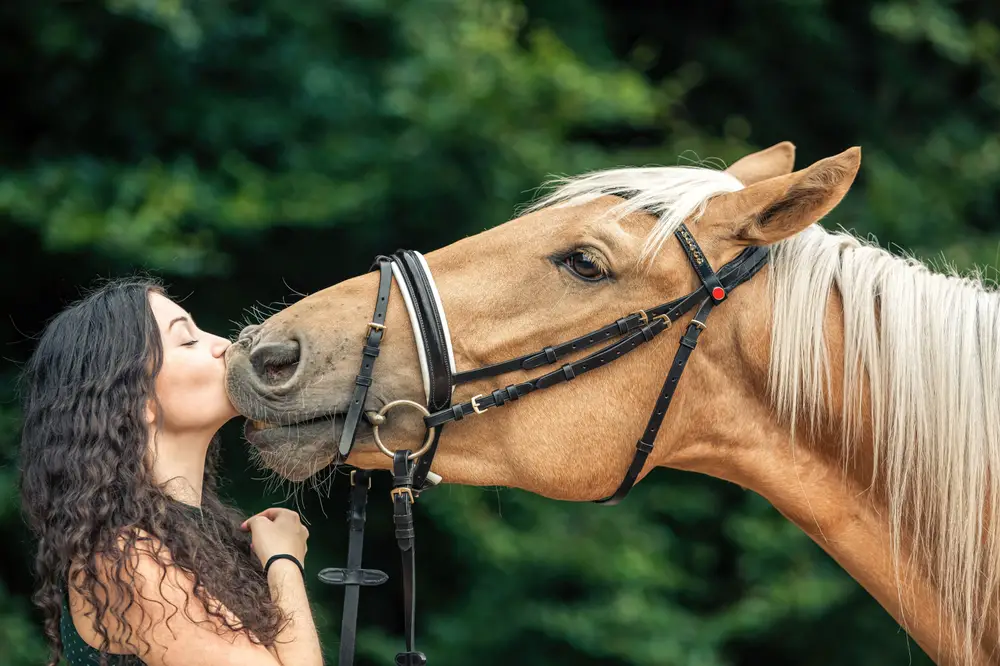
Horses have long been companions to humans, and their emotional intelligence plays a big part in this relationship. They are highly sensitive creatures, capable of reading human body language and emotions. Just like dogs, horses recognize and respond to the emotional states of the people around them. They offer comfort and companionship, often mirroring the behavior of their human handlers. This makes them excellent partners in therapeutic settings, where their presence alone can be incredibly soothing.
Horses communicate their emotions through a complex language of body movements and sounds. When bonded with a human, they often develop a two-way communication system that relies on mutual trust and understanding. They can sense fear, anxiety, and joy, reacting in ways that show they’re emotionally in tune with their environment. This sensitivity extends to their relationships with other horses, where they form strong social bonds. Their ability to connect emotionally with both humans and other horses makes them truly special.
9. Parrots
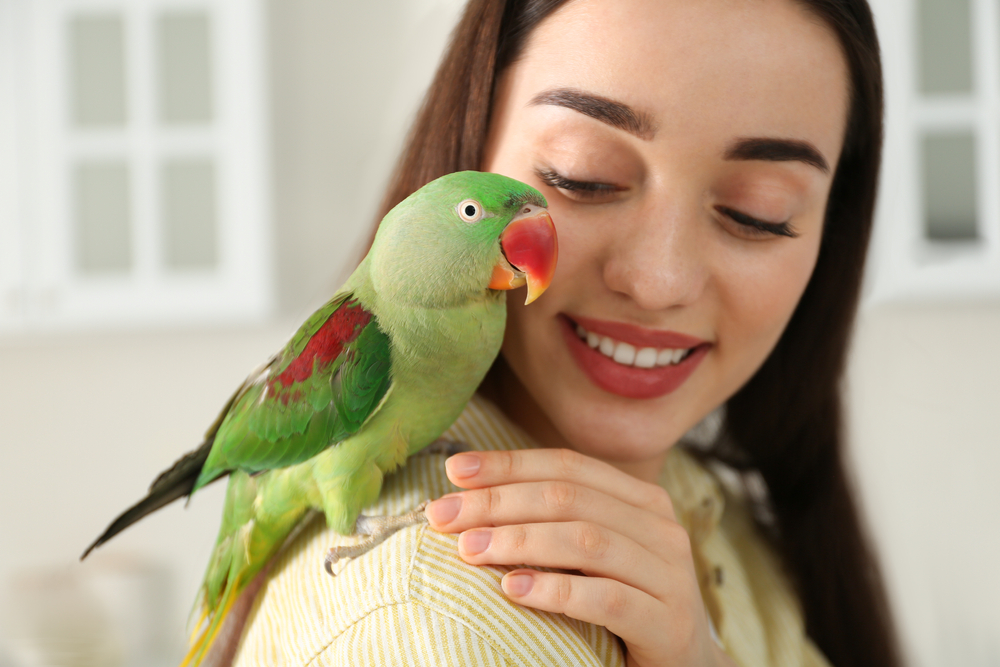
Parrots are not just renowned for their ability to mimic human speech; they possess a surprising level of emotional intelligence. These birds form strong bonds with their human caregivers, often showing affection through cuddling and vocalizing. Parrots are also capable of feeling boredom and loneliness, emotions that they express through behavioral changes. They thrive on interaction, needing social engagement to maintain their mental and emotional well-being. This makes them particularly unique among birds.
Their ability to learn and understand human words is not just a party trick; it’s a form of communication that showcases their cognitive and emotional skills. Parrots use their vocal abilities to bond and express themselves, much like we use language to connect with others. They can also recognize emotions in their human caregivers, responding with empathy and affection. Their complex emotional lives make them fascinating companions, requiring more than just the typical pet care. Parrots are a testament to the fact that emotional intelligence isn’t limited to mammals.
10. Pigs
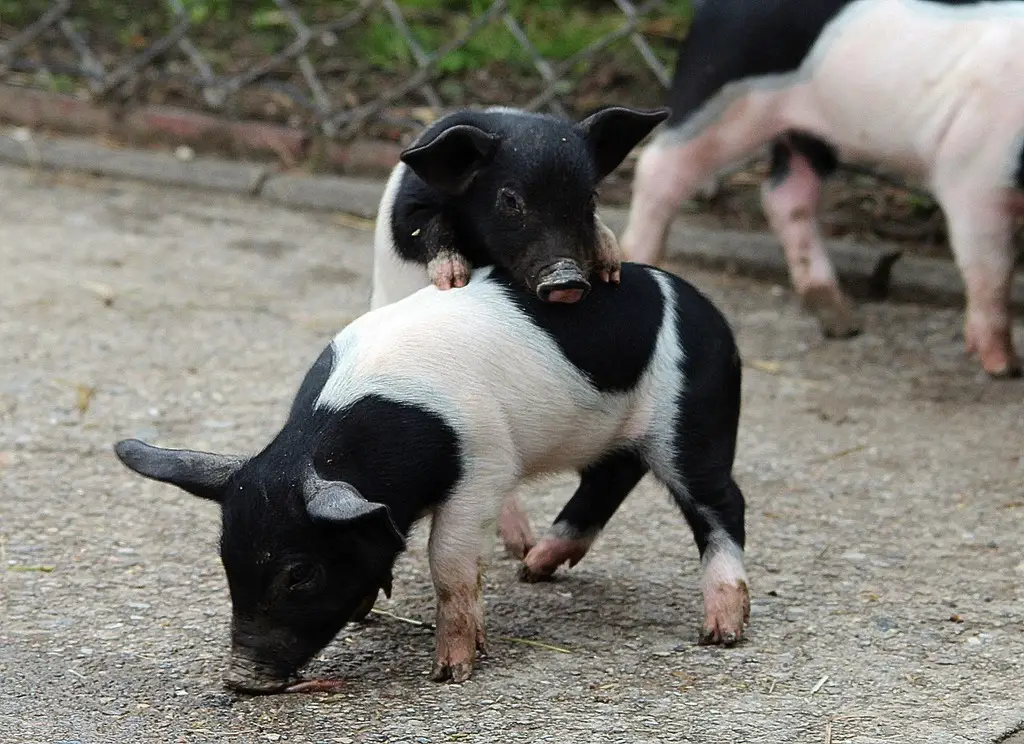
Pigs are often underestimated when it comes to intelligence, but they’re surprisingly emotionally savvy. They are highly social animals, forming tight-knit groups and demonstrating behaviors that suggest a capacity for empathy and understanding. Studies have shown that pigs can experience a wide range of emotions, such as joy, sadness, and even empathy for other pigs in distress. They also show an appreciation for music, which can evoke emotional responses similar to those in humans. This emotional depth is part of what makes them such interesting animals.
In terms of social structure, pigs have complex hierarchies that require emotional intelligence to navigate. They communicate through a variety of vocalizations and body language, demonstrating an ability to interpret the emotions of those around them. Pigs are also known to form strong bonds with humans, often seeking out affection and interaction. Their playful and affectionate nature is a testament to their emotional awareness. If you’ve ever spent time with a pig, you know they’re far from the simple creatures they’re sometimes made out to be.
11. Cows
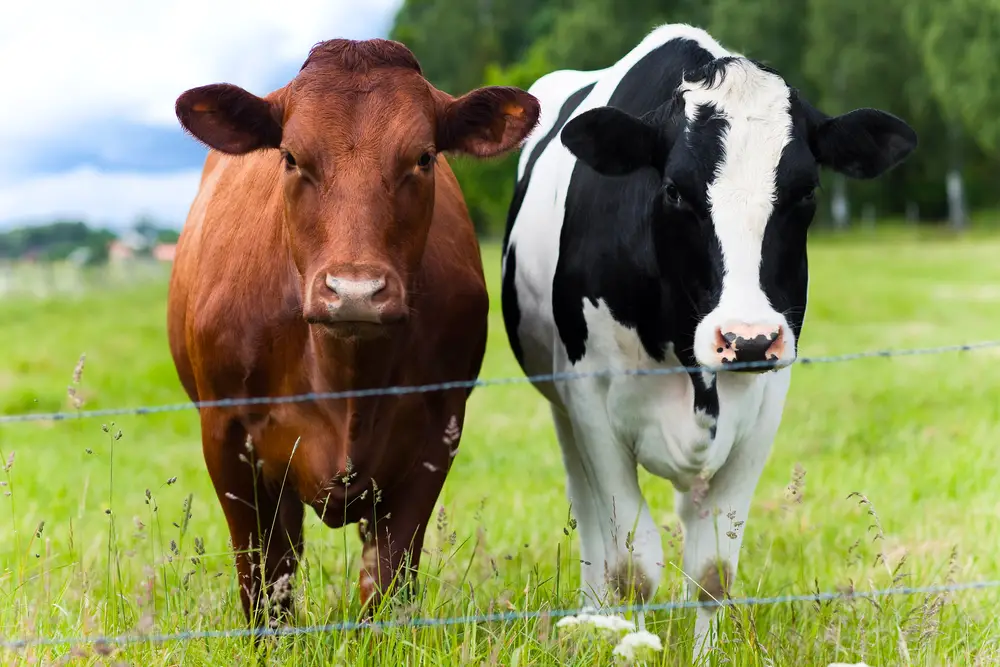
Cows are more than just livestock; they’re deeply emotional beings with complex social lives. They form strong bonds with other cows, often developing friendships that last a lifetime. Cows have been observed to grieve the loss of friends and family, displaying behaviors that suggest a deep understanding of loss and sorrow. Their social structures are tightly knit, and they often show affection through grooming and close proximity. These connections are vital for their emotional well-being.
Their emotional intelligence doesn’t stop with their own kind; cows have been known to interact positively with humans, often seeking comfort and companionship. They respond to gentle handling and even enjoy music, which can soothe and relax them. This emotional sensitivity makes them particularly vulnerable to stress, highlighting the importance of their emotional well-being. Cows are a reminder that emotional depth and intelligence can be found in the most unexpected places. They’re a testament to the fact that emotional intelligence isn’t reserved for humans alone.
12. Rats
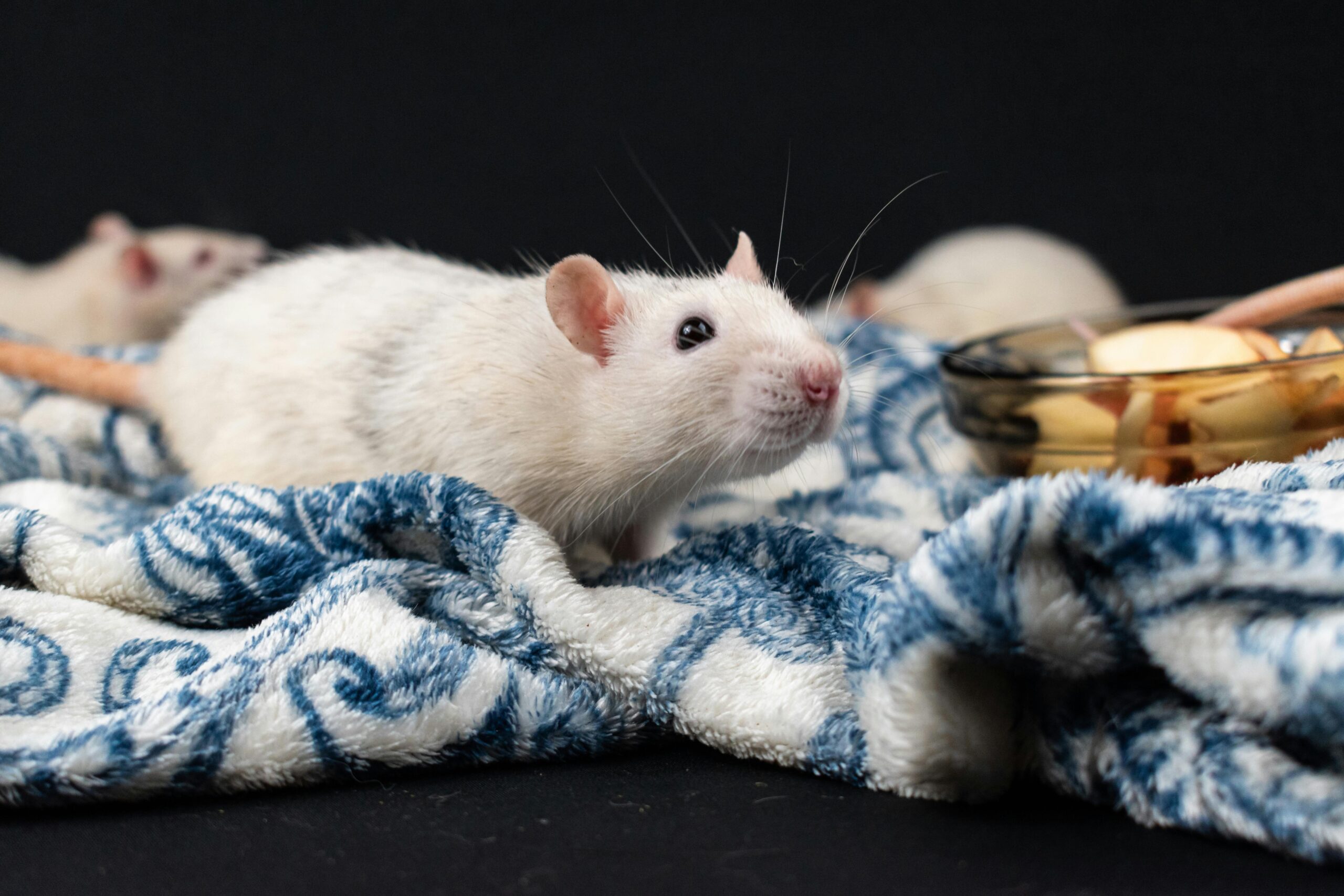
Rats might not be the first animals you think of when it comes to emotional intelligence, but these rodents are surprisingly empathetic. They exhibit behaviors that suggest an understanding of fairness and compassion, often helping other rats in distress. Research conducted by Dr. Peggy Mason at the University of Chicago found that rats will free trapped companions, even when there’s no immediate reward. This altruistic behavior indicates a level of empathy and understanding that’s rare in the animal kingdom. Rats can teach us a lot about selflessness.
Rats are also known to form complex social bonds, living in communities where cooperation is key. They engage in play and grooming, which helps to strengthen these social ties. Their ability to share resources and care for each other demonstrates an emotional intelligence that rivals many other animals. Rats are often misunderstood, but their capacity for empathy and complex social interactions makes them truly remarkable. If you’re looking for unexpected emotional depth, look no further than these tiny rodents.
13. Whales
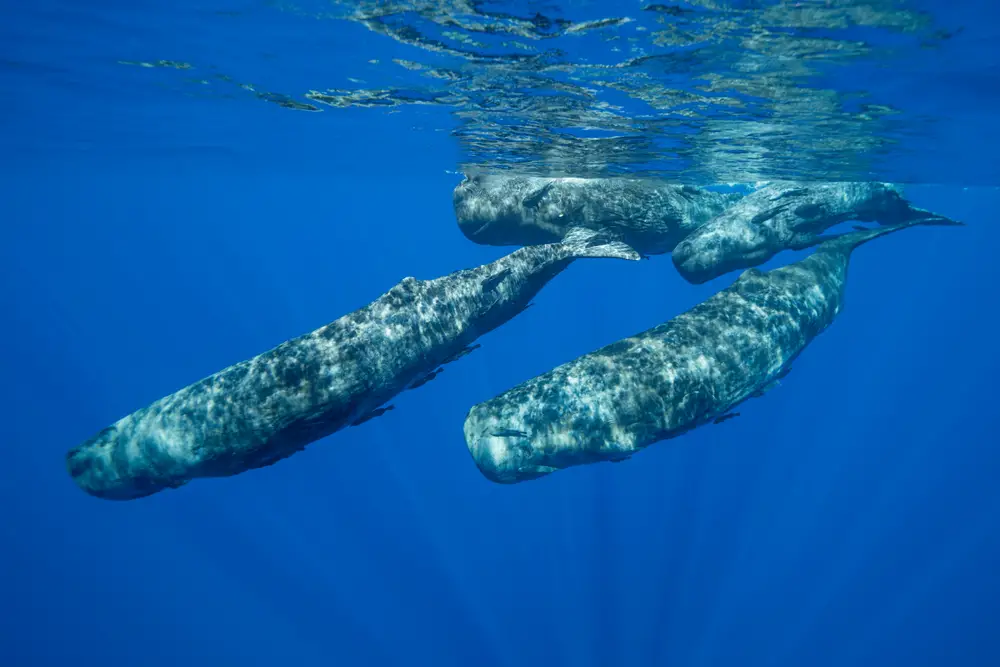
Whales are the gentle giants of the ocean, possessing an emotional intelligence that’s as vast as the seas they roam. They live in complex social structures known as pods, where they communicate using a sophisticated system of vocalizations. Whales have been observed mourning their dead, often carrying deceased calves for days before letting them go. This behavior indicates a deep emotional connection and understanding of loss. Their social lives are rich and intricate, often involving cooperation and shared responsibilities.
Their communication skills are not just for practical purposes; they also sing songs that can last for hours, showcasing a deep emotional expression. These songs can change over time, suggesting that they evolve based on social interaction and emotional states. Whales have been seen helping other marine animals, displaying empathy and compassion that go beyond survival instincts. The emotional intelligence of whales is a reminder of the depth of feeling that exists in the natural world. They are, in many ways, the emotional titans of the ocean.
14. Octopuses
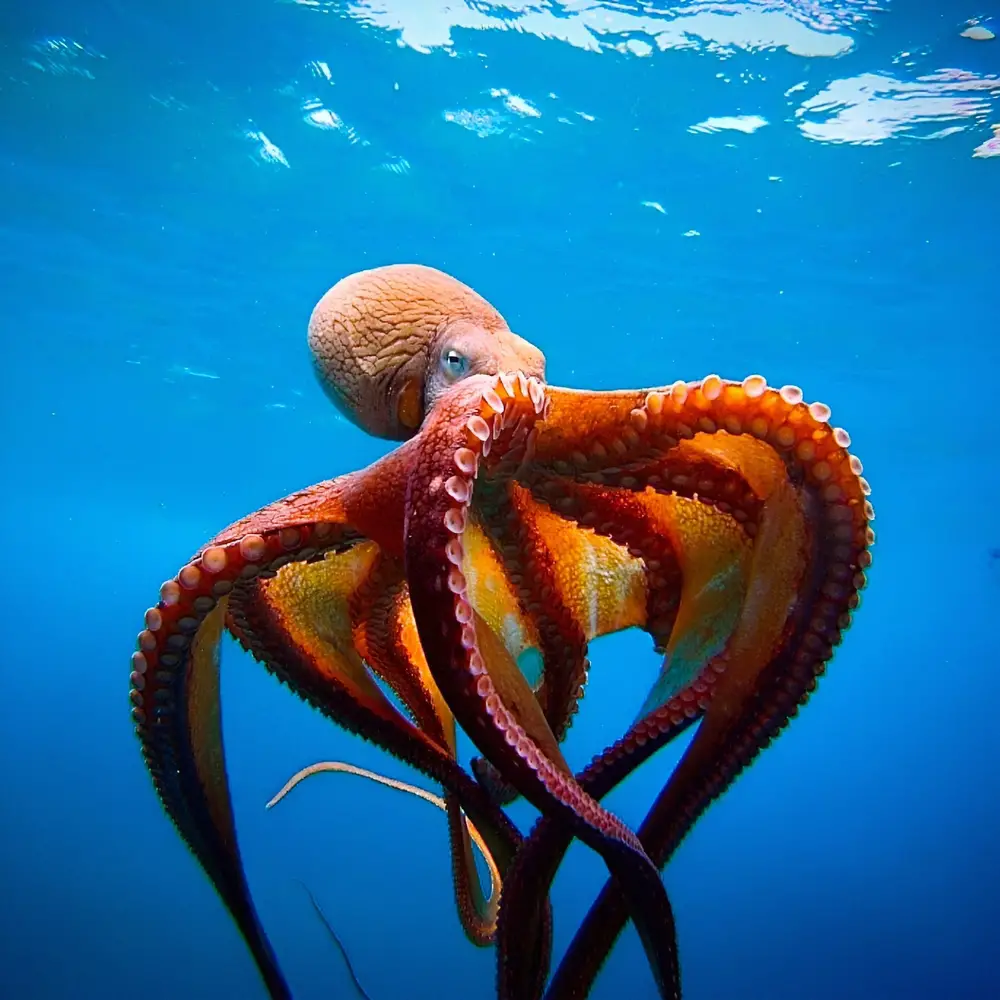
Octopuses are not the first creatures that come to mind when you think about emotional intelligence, but these invertebrates are surprisingly complex. They have large brains relative to their body size, allowing them to exhibit behaviors that suggest a level of emotional and cognitive sophistication. Octopuses can recognize individual humans and have been known to show preferences for certain people. They also engage in play, which is a sign of emotional and cognitive complexity. Their ability to solve problems and navigate mazes showcases their intelligence.
Despite being solitary creatures, octopuses have been observed displaying behaviors that suggest they can experience emotions. Their ability to change color not only serves as camouflage but can also indicate their emotional state. When stressed or threatened, they can become darker, while more relaxed states might see them in calmer hues. This color-changing ability highlights their emotional expressiveness. Octopuses challenge the notion that emotional intelligence is limited to social animals. They’re proof that intelligence and emotion can take many different forms.
15. Wolves
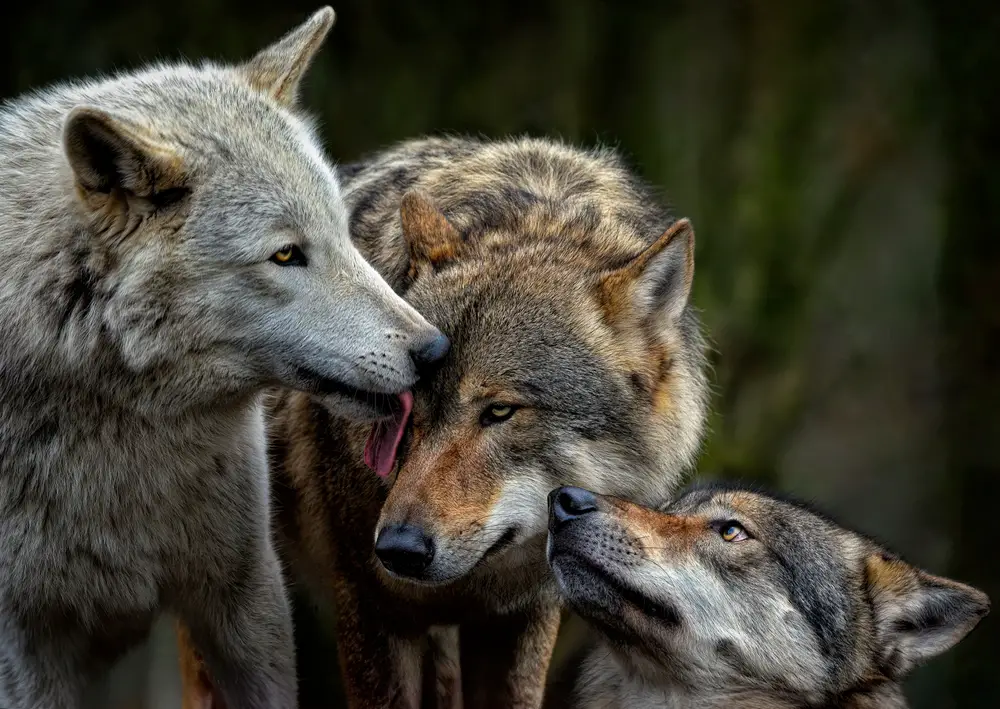
Wolves are known for their pack mentality, but their emotional intelligence goes far beyond just group dynamics. They form intricate relationships within their packs, which are crucial for hunting and raising pups. Wolves display behaviors that suggest a deep emotional connection to their pack members, often working together to care for injured or sick members. They communicate through a complex system of vocalizations and body language, which helps maintain social harmony. Their ability to navigate these social structures requires a high level of emotional intelligence.
Wolves also grieve the loss of pack members, showing signs of distress and mourning. This emotional depth is a crucial part of their social structure, allowing them to maintain strong bonds and cooperation. Their capacity for empathy and understanding of social roles makes them exceptional in the wild. Wolves are a reminder that emotional intelligence isn’t just about understanding others but also about maintaining complex social structures. Their pack dynamics serve as a model for teamwork and community in the natural world.
